Related Research Articles

Tallinn is the capital and most populous city of Estonia. Situated on a bay in north Estonia, on the shore of the Gulf of Finland of the Baltic Sea, Tallinn has a population of about 457,000 and administratively lies in the Harju maakond (county). Tallinn is the main governmental, financial, industrial, and cultural centre of Estonia. It is located 187 km (116 mi) northwest of the country's second largest city, Tartu; however, only 80 km (50 mi) south of Helsinki, Finland, also 320 km (200 mi) west of Saint Petersburg, Russia, 300 km (190 mi) north of Riga, Latvia, and 380 km (240 mi) east of Stockholm, Sweden. From the 13th century until the first half of the 20th century, Tallinn was known in most of the world by variants of its other historical name Reval.
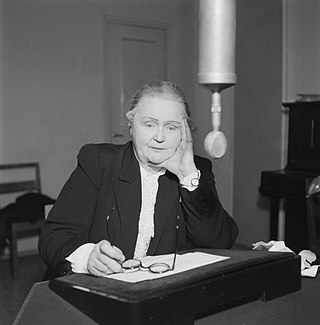
Hella Wuolijoki, also known by the pen name Juhani Tervapää, was an Estonian-born Finnish writer known for her Niskavuori series.
Tallinn Black Nights Film Festival (BNFF), or PÖFF (Estonian: Pimedate Ööde Filmifestival), is an annual film festival held since 1997 in Tallinn, the capital city of Estonia. PÖFF is one of the largest film festivals in Northern Europe. In 2014 it was upgraded to an A-list festival by FIAPF.

Estonia, officially the Republic of Estonia, is a country by the Baltic Sea in Northern Europe. It is bordered to the north by the Gulf of Finland across from Finland, to the west by the sea across from Sweden, to the south by Latvia, and to the east by Lake Peipus and Russia. The territory of Estonia consists of the mainland, the larger islands of Saaremaa and Hiiumaa, and over 2,300 other islands and islets on the east coast of the Baltic Sea, covering a total area of 45,335 square kilometres (17,504 sq mi). Tallinn and Tartu are the two largest urban areas. The Estonian language is the official language and the first language of the majority of the population of 1.4 million.
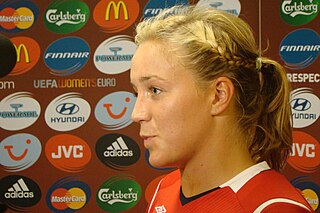
Anneli is a female given name common in Finland, Sweden, Estonia and Norway. It originated as a variation of the name Anna. It is listed by the Finnish Population Register Centre as one of the top 10 most popular female given names ever.

Laine Mägi is an Estonian stage, film and television actress, dancer and choreographer and dance pedagogue who began her career as a teenager. She is the founder of the Laine Mägi School of Dance, based in Pärnu.
Kersti Heinloo is an Estonian stage, film and television actress who began her career in radio.
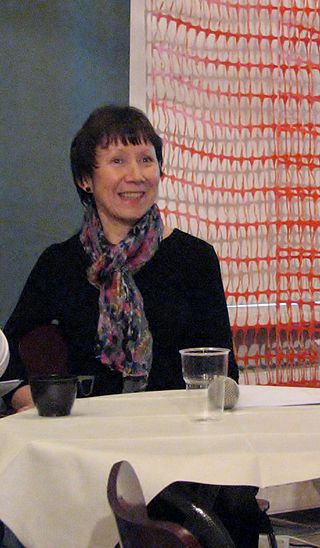
Anu Lamp is an Estonian stage, film, television and voice actress, stage director, translator and instructor.

Hele Kõrve is an Estonian stage, television, film and voice actress and singer.
Meeli Sööt was an Estonian stage, television, radio and film actress.

Elisabet Reinsalu is an Estonian stage, television, voice, and film actress.

Rita Raave is an Estonian stage, television and film actress, and painter.
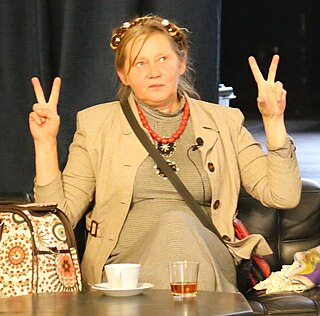
Merle Jääger is an Estonian television, stage and film actress, poet and author who frequently uses the pen name Merca. Initially associated with the burgeoning Estonian punk rock scene of the early to mid 1980s, she has been described as the "bard of protest". Her career as an actress began in her early 20s and she has received a number of high-profile awards for stage roles.
Mati Ahven is an engineer and mechanic who was a member of the Estonian Supreme Soviet and a voter for the Estonian restoration of Independence.
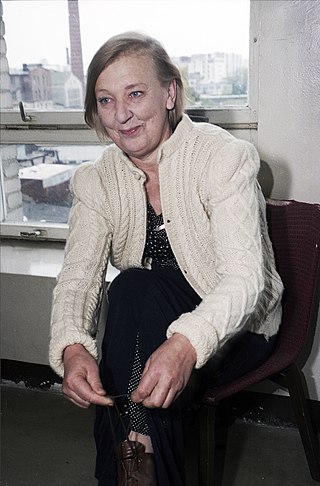
Ines Aru is an Estonian stage, radio, voice, television, and film actress whose career began in the early 1960s.

Marta Laan is an Estonian stage, television, and film actress whose career began in the late 2000s.
Liina Triškina-Vanhatalo is an Estonian film director, scenarist and editor.
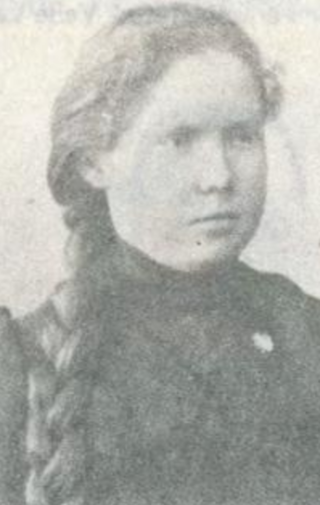
Marta Sophia LeppUtuste, also known as Sophia Vardi and Maarda Lepp-Utuste, was an Estonian writer, editor, educator, and political and religious leader.
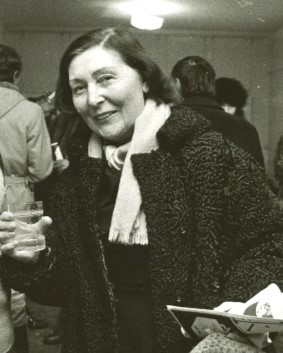
Helmi Üprus was an Estonian architectural and art historian. She trained in romance languages, studied English and ethnography, and earned a master's degree in art history from the University of Tartu in 1936. She worked her way up to head the cultural history department of the Estonian National Museum, where she researched folk art. In 1947, she began working at the Institute of History of the Academy of Sciences of the Estonian SSR. Persecuted by Stalinism she lost her job in 1950 and worked in a factory until Stalin's death. From 1953, she was the chief specialist in architecture and history for the government monument restoration service.
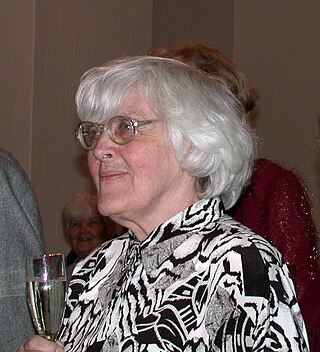
Linda Poots was an Estonian zoologist and journalist known for her work with bats. She was the longtime editor of the Estonian nature magazine Eesti Loodus.
References
- 1 2 3 "Anneli Ahven - Eesti filmi andmebaas". www.efis.ee. Retrieved 15 July 2021.
- ↑ Tallinn University website, Anneli Ahven, retrieved 9 December 2024
- ↑ Tallinn University website, The short film "What's Up With Numbats?" competes at the Sony Future Filmmaker Awards, article dated 26 April 2024
- ↑ IMDB website, Anneli Ahven, retrieved 9 December 2024